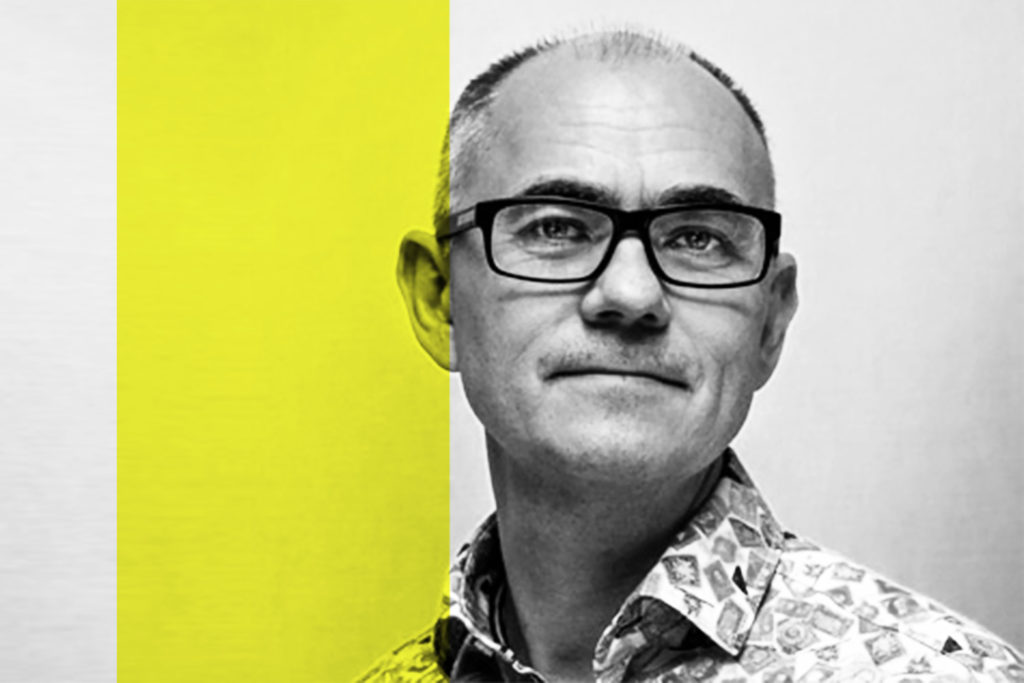
At AstraZeneca’s new innovation center Health Works in Gothenburg the team is currently exploring the future of healthcare through human-centered design methodologies. Niklas Magnell, Chief Operating Officer at Health Works, is one of the speakers at Innovation Pioneers Summit 2020 – Changing The Way We Collaborate. On November 10th he will be sharing learnings from establishing Health Works and the power of collaboration when working with innovation within the pharmaceutical industry.
Health Works is an inviting physical space where patients, nurses, physicians, relatives, citizens, payors and other stakeholders can come together and speed up innovation to ensure optimal solutions to core healthcare challenges. The innovation center is still in its very early days, and Niklas Magnell is working with the operational set up of the space as we speak.
“Health Works is about taking AstraZeneca beyond making pills. We want to explore new solutions by focusing more on deeper patient insights, and by designing solutions in collaboration with others,” explains Niklas Magnell, COO at Health Works.
Health Works is working in collaboration with healthcare providers and patient organizations to run end-user workshops. The aim is to understand the patient experience better, often even before a health issue actually arises. By using human-centered design methodologies the team conducts deep interviews, workshops, tests out scenarios and prototypes solutions.
“We do this together with people who are living with a disease, their relatives, nurses and physicians, hospital management, payors, medtech partners and other relevant partners,” Niklas Magnell explains and continues:
“Our aim is to design health care solutions that will have a true positive impact on patients’ lives and our healthcare systems. Always keeping the human-being at the center of our work and collaborating closely with partners who are as dedicated as we are to that mission. The solution could be an app, a new device, or new training material. Something you wouldn’t traditionally expect from a pharmaceutical company.”
According to Niklas, now is the time to start exploring and learning. Health will be a more integrated solution in the future, with more diagnostics and monitoring solutions in the hands of the patient. AstraZeneca are a long-time member of Innovation Pioneers, and a company that have been driven by innovation from the very beginning.
“We are exploring and learning how to take the step from being a provider of pills to becoming a provider of future healthcare solutions. You can compare it to a car company. The question you should be asking yourself isn’t what car should be made next, but rather what transportation solutions will be needed,” explains Niklas Magnell.
How do you work with human-centered design to solve challenges for patients and the healthcare system?
“It is actually turning things 180 degrees around. Traditionally we’ve created a product, and then found the right market fit. Now we are starting with a person who is experiencing a health journey. What is that journey? What is that person expecting and what are they concerned about? Rather than starting from the tech side, we are starting with the person’s needs. We are looking more at a longterm understanding of a patient rather than traditional market research.”
Are there any concrete examples you can share of innovation projects that have been completed or that are currently running within Health Works?
“One project we are working on is around wearables and how they can improve clinical trials by allowing for wider demographics to be part of clinical trials, gather more relevant data in context, turn patients into fairly passive data sources to active participants and to give physicians better understanding of the life of their patients.. We are exploring what people want from wearables, and also what they expect in the sense of personal integrity connected to wearables. In the long run, these wearables could possibly also be provided within healthcare, to let patients be more in control at home for any type of diagnostics.”
Why is innovation important in the field of healthcare?
“We are an extremely innovative industry. We are also faced with a real challenge. We have an aging population with a growing set of needs and other expectations. People in their 80s are expecting to live like they did when they were 40 or 50. The aging population is expecting to be healthier longer, and they are expecting more from healthcare. The healthcare system of the future also needs to involve ethics, matched with cost and benefit, to achieve a sustainable healthcare system that is not hugely expensive. As an industry we are faced with other challenges than we were just 20 – 30 years ago. That’s why we need to start exploring more solutions for the future.”
What can people expect from your learning session at Innovation Pioneers Summit 2020?
“They can expect to hear about how AstraZeneca is trying out a new role in healthcare. We need to step out of our normal role and not aim at providing products but rather go into learning mode. We still don’t know where we will end up, or how we will make revenue. We don’t know if this will be successful, but we are in a position where we need to try something new. We need to explore what healthcare will look like in the future, and the way forward is by focusing on the end-users and by collaboration with others.”
Innovation Pioneers and The Swedish Institute are proud to present the two half-day digiphysical event ”Innovation Pioneers Summit 2020 – Changing the way we collaborate” on November 10 – 11. Through a series of learning sessions and innovation classes we’ll be bridging the innovation ecosystems from Sweden, Singapore, South Korea, Vietnam and beyond. Sign up today and secure your seat at the virtual summit at www.ipsummit.se
